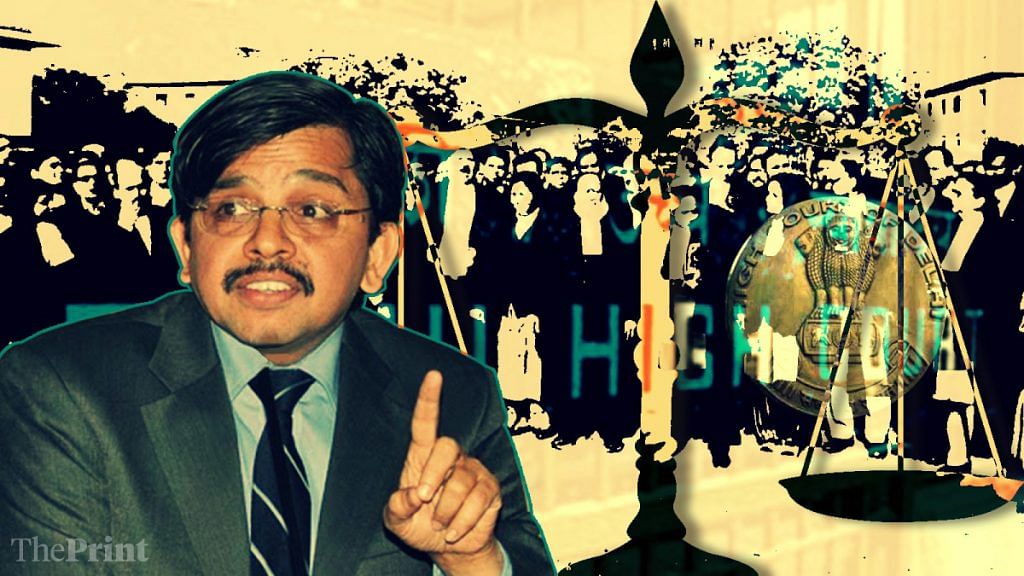New Delhi: The Delhi High Court Wednesday saw a gripping exchange of conversation between Solicitor General Tushar Mehta and Justice S. Muralidhar.
The high court was hearing a petition filed by activist Harsh Mander, demanding an SIT probe into the communal riots that erupted in Northeast Delhi on 23 February and continued for the next two days, and filing of FIR against BJP leaders Parvesh Verma, Anurag Thakur, Kapil Mishra and others for making ‘inflammatory’ speeches.
During the hearing, Justice Muralidhar came down heavily on the authorities and said that “the police should be guided by the judgment of the Constitution Bench of the Supreme Court in Lalita Kumari versus Govt of UP and others case and go strictly by the mandate of the law”.
On Thursday, when the case was taken up by a different bench of the high court, senior advocate Colin Gonsalves, representing Mander, also relied heavily on the 2013 Lalita Kumari case to present his arguments.
While the case will next be heard in April, ThePrint explains what the judgment in Lalita Kumari case stated.
Also read: IB officer Ankit Sharma’s death case of ‘targeted killing’, AAP’s Tahir Hussain named in FIR
Who was Lalita Kumari?
Lalita Kumari was a minor girl who was kidnapped, following which her father, Bhola Kamat, filed a habeas corpus petition in the Supreme Court.
He alleged that even though he had submitted a written report to the officer-in-charge of the police station concerned, no action was taken. An FIR was filed only after the matter reached the superintendent of police.
While hearing the case, the top court noticed disparity in registration of FIRs on a case to case basis across the country after it issued notice to the central and state governments.
A three-judge bench of the court then came across contradictory judgments on whether a police officer is bound to register an FIR when he is informed of the commission of a cognisable offence under Section 154 of the Code of Criminal Procedure (CrPC).
A cognisable offence is one where the police can make an arrest without a warrant. These include offences such as murder, rape, dowry death, kidnapping, etc. Section 154 of the CrPC lays down the manner in which information received on commission of cognisable offences needs to be treated.
The question on the mandatory registration of FIR was then referred to a 5-judge bench.
‘Police officers cannot avoid their duty’
Answering the question in the affirmative, the Supreme Court in the Lalita Kumari case framed eight guidelines to be followed by the police.
The bench ruled that registration of an FIR is mandatory under Section 154 CrPC if the information received by the police discloses commission of a cognisable offence. No preliminary inquiry is permissible in such a situation, it said.
“The police officer cannot avoid his duty of registering offence if cognisable offence is disclosed. Action must be taken against erring officers who do not register the FIR if information received by him discloses a cognisable offence,” the court had observed.
As to the cases in which preliminary inquiry may be conducted, the court said this would depend on the facts and circumstances of each case. The court also provided an illustrative list of such cases, which included matrimonial/family disputes, commercial offences, medical negligence cases, corruption cases and cases where there was a delay in initiating a criminal case.
The court also ordered that in any case, a preliminary inquiry should be initiated within 7 days. This was modified in March 2014, increasing the time limit to 15 days in normal cases and six weeks in exceptional cases.
Also read: Can’t allow another 1984: Delhi HC orders burials with ‘dignity’, shelters for riot victims
